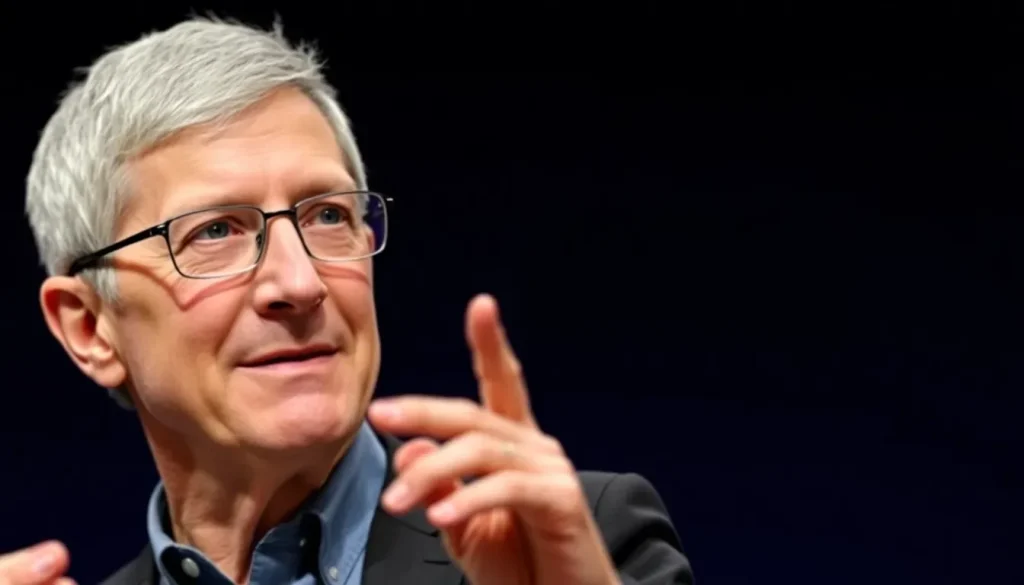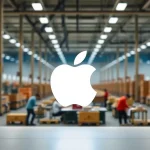Tim Cook exonerated as labor charges dropped by NLRB

In a significant development for Apple and its leadership, the US National Labor Relations Board (NLRB) has officially dropped labor violation charges against CEO Tim Cook. This decision marks the conclusion of a case that has garnered considerable attention regarding workplace policies and the rights of employees. Here’s a closer look at the background of the case, what led to these charges, and the implications of this recent ruling.
Understanding the context of labor rights at Apple
The issue surrounding Tim Cook and Apple’s labor practices is rooted in a broader narrative about employee rights in the tech industry. In January 2023, the NLRB accused Apple of violating federal law, claiming that Cook’s actions, particularly an email he sent to staff, were problematic. This email was sent in response to leaks about sensitive company information, including discussions on pay equity and corporate policies.
Former Apple employee Ashley Gjovik played a pivotal role in bringing this case to light. She alleged that Cook’s email, which threatened repercussions for leakers, infringed upon workers’ rights to free speech and open communication. The email stated that those who leaked information “do not belong here,” emphasizing Apple’s commitment to confidentiality.
This incident reflects a growing tension in the workplace dynamics within major corporations, particularly in tech. Employees are increasingly aware of their rights and are willing to challenge practices that they perceive as unjust. The situation at Apple is not an isolated case; it resonates with broader labor movements advocating for transparency and protection against retaliation.
Recent developments in the case against Tim Cook
As reported by Bloomberg, the NLRB has now withdrawn the allegations against Tim Cook. This decision comes alongside the dismissal of other significant claims against Apple, indicating a shift in the NLRB’s approach under new leadership.
The withdrawal of these allegations suggests that the NLRB has reconsidered the viability of the claims after an internal review. The agency has also retracted claims regarding Apple’s confidentiality rules and its treatment of former employee Janneke Parrish, who had previously raised concerns about labor practices.
This shift follows a notable change in the NLRB's leadership, with President Trump replacing the previous prosecutor, Jennifer Abruzzo, with William Cowen. Since his appointment, there has been a noticeable decrease in the number of cases pursued by the NLRB, raising questions about the agency's commitment to enforcing labor rights.
Implications for Apple's workplace policies
The dismissal of charges against Tim Cook does not imply that Apple’s policies will go unexamined. In fact, this case has sparked renewed discussions about workplace culture and employee rights within large corporations. Some key implications include:
- Increased scrutiny of corporate communications: Companies might need to reconsider how they communicate policies to their employees, balancing the need for confidentiality with employees' rights to speak freely.
- Potential impact on employee activism: This case could embolden employees to speak out against perceived injustices, knowing that there are channels to address their grievances legally.
- Reevaluation of labor relations strategies: As the landscape of labor relations evolves, tech companies may need to adapt their strategies to ensure compliance with labor laws and foster a more inclusive workplace environment.
Looking ahead: The future of labor relations
The resolution of this case opens the door for broader discussions about labor practices not only at Apple but across the tech industry. As employees become more vocal about their rights, companies will have to navigate the complexities of maintaining a positive corporate culture while upholding legal standards.
Moreover, the outcome of this case may influence future labor policies and practices. The NLRB's decisions under the new leadership could set important precedents for how similar cases are handled in the future, affecting not just large corporations but also small businesses navigating the complexities of labor laws.
For those interested in a deeper exploration of this topic, you may find the following video insightful, which discusses the implications of these labor relations cases:
Conclusion: What this means for the tech industry
The recent decision by the NLRB to drop the charges against Tim Cook reflects a complex interplay between corporate governance and employee rights. As tech companies like Apple continue to navigate these waters, the outcomes of such cases will likely influence labor relations practices across the industry. The balance between maintaining confidentiality and respecting employee rights will remain a critical focus for organizations moving forward.
Explore the latest tech accessories
- AirPods Pro 3
- iPhone Air Ultraslim Magsafe Power Bank ($22.99)
- Apple AirTag 4 Pack
- Apple AirTag
- Beats USB-C to USB-C Woven Short Cable
- Wireless CarPlay adapter
FTC: We use income-earning auto affiliate links. More.




Leave a Reply